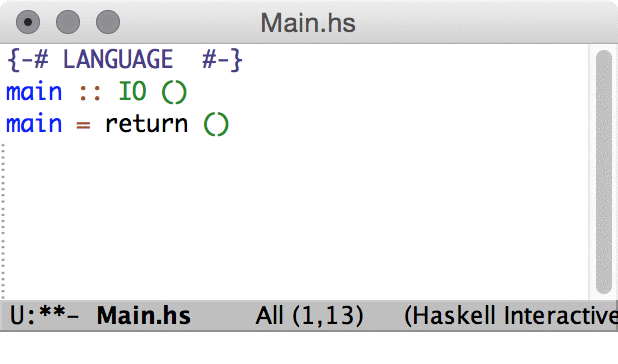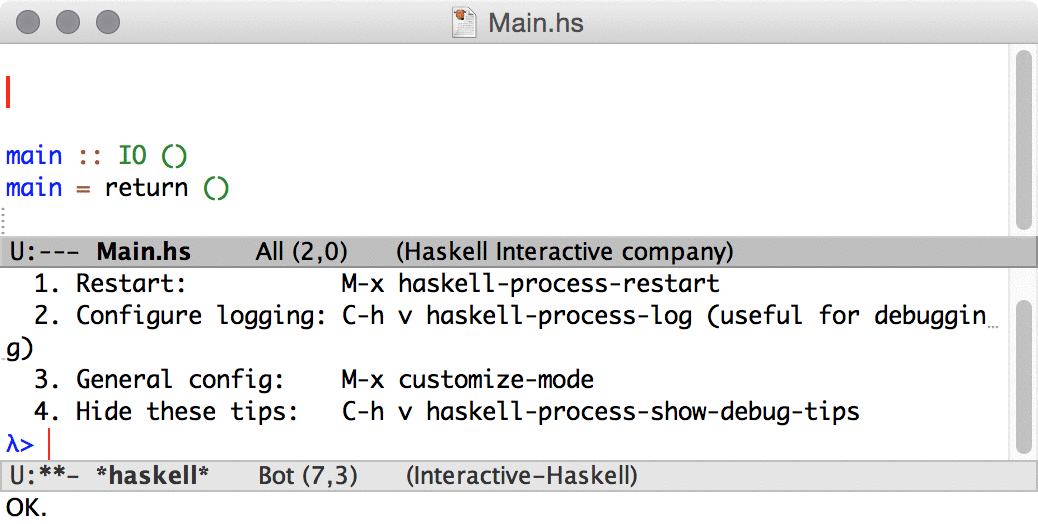Next: Unicode support, Previous: Syntax highlighting, Up: Top [Index]
haskell-mode can complete symbols, pragma directives, language
extensions, and language keywords out-of-box. haskell-mode
completes identifiers (symbols) using tags (see “Tags”), however you
can get more precise completions with haskell-interactive-mode.
In interactive mode completion candidates are produced by querying
GHCi REPL.

If haskell-interactive-mode is enabled and working Haskell mode
provides completions for import statements taking into account
currently loaded and available packages. Also it completes symbols
querying REPL with :complete command, hence completion
candidate list also includes symbols from imported modules.

Unfortunately, it is not possible to provide candidates for
identifiers defined locally in let and where blocks even
in interactive mode. But if you’re using
company-mode you can override
company-backends variable for Haskell buffers to combine
completion candidates from completion-at-point function
(company-capf backend) and dynamic abbrevs.
company-mode provides special backend for dabbrev code
completions, namely company-dabbrev-code. To combine
completions from diffrent backends you can create grouped backends, it
is very easy — a grouped backend is just a list of backends, for
example:
(add-hook 'haskell-mode-hook
(lambda ()
(set (make-local-variable 'company-backends)
(append '((company-capf company-dabbrev-code))
company-backends))))
If you use a GHCi version prior to 8.0.1 you might want to set
haskell-completions-complete-operators to nil, if you
experience major slowdown while trying to complete after an Haskell
operator (See GHC-Bug 10576).